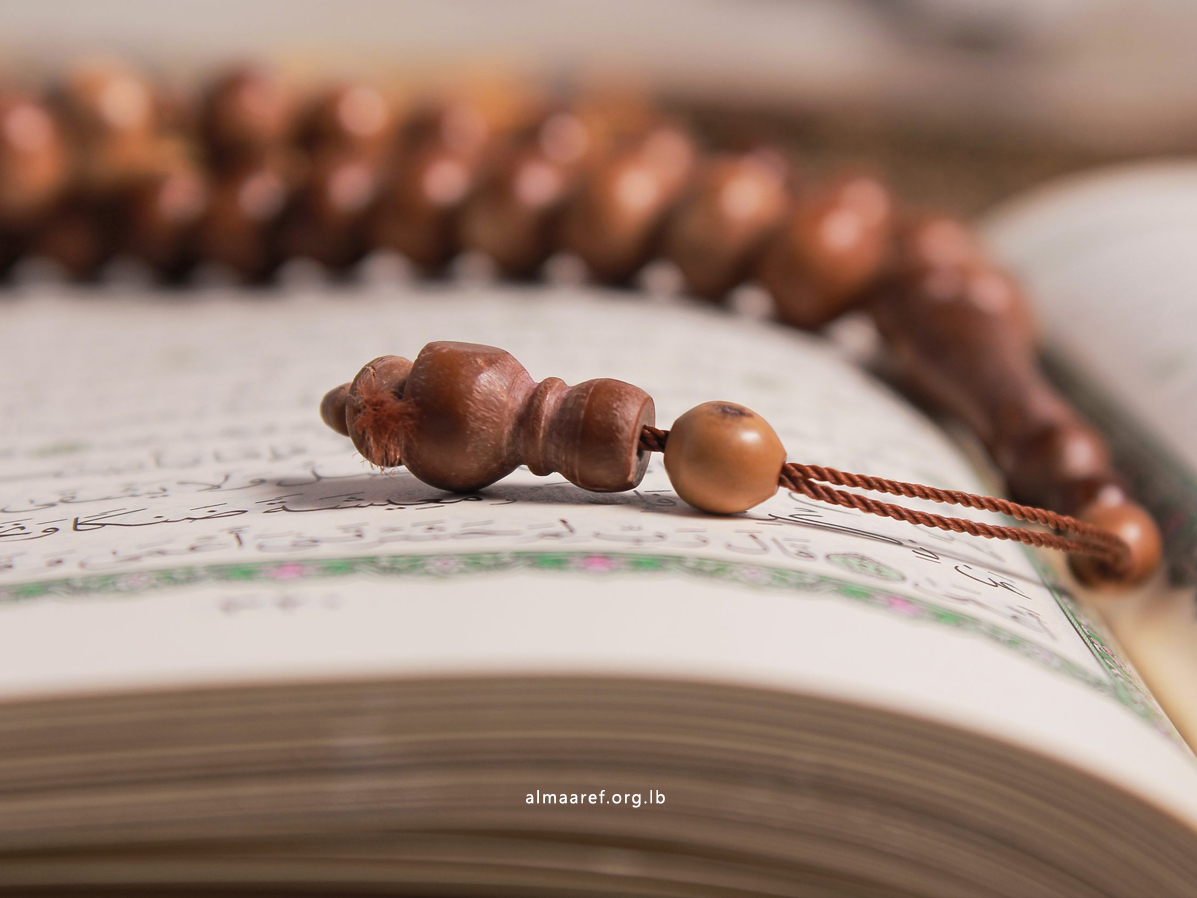The Three Ranks of Worship
There is no doubt that worshippers have ranks, just as Paradise has levels. God Almighty says: "And that man shall have nothing but what he strives for. And that his striving will soon be seen. Then he will be recompensed with the fullest recompense".[1] Every person has their own striving in this world, and based on this striving, the divine reward and generosity will be given. Among the worshippers, there are those who desire God's reward and His Paradise, some fear His fire and punishment, and others worship Him out of love and gratitude for His blessings and favors. Undoubtedly, such worship is the greatest form of worship.
It is narrated by Allah’s Messenger (pbuh): "The Prophet Shu'ayb (a.s) wept out of love for Allah, the Almighty, until he became blind. Allah, the Almighty, restored his sight, and then he wept again until he became blind, and Allah restored his sight once more. He continued weeping until he became blind for the third time, and Allah restored his sight. When this happened for the fourth time, Allah revealed to him: 'O Shu'ayb, how long will this continue? If this is out of fear of the Fire, you are safe; and if it is out of longing for Paradise, I have made it permissible for you.' Shu'ayb replied: 'My God and my Master, You know that I did not weep out of fear of Your Fire, nor out of longing for Your Paradise, but the love of You has taken hold of my heart, and I cannot bear to be apart from You until I see You.'[2] Allah, the Glorious and Exalted, revealed to him: 'If that is the case, then because of this, I will make My servant Moses, the son of Imran, serve you.'"[3]
It is narrated by the Commander of the Faithful, Al Imam Ali (a.s): "There are people who worship Allah out of desire (for reward); that is the worship of merchants. And there are people who worship Allah out of fear (of punishment); that is the worship of slaves. And there are people who worship Allah out of gratitude; that is the worship of the free." [4]
It is also narrated by him (a.s): "My God, I did not worship You out of fear of Your fire, nor out of desire for Your paradise, but I found You worthy of worship, so I worshiped You."[5]
If we wish to worship Allah, let our worship be one of love and gratitude, not one driven by desire or fear. Let it be a worship of attachment, passion, and devotion, where we forget any other love. In truth, there is no room in our hearts for anything other than Allah, the Exalted. If we love something, someone, or any matter, let it be through the love of Allah, seeking His pleasure, and within the context of His love and approval.
It was said to Allah’s Messenger (pbuh) one day, as he had exhausted himself with worship: "Hasn't Allah already forgiven you for your past and future sins?" He (pbuh) replied: "Shall I not be a grateful servant?"[6]
In conclusion, to those who seek to reform themselves and gain their God’s pleasure and love, why not turn inward for a moment and admonish yourselves? Then, after that, discipline your souls so that you may follow the path of the righteous, walk the way of the prophets and their successors, and emulate the Master of the Eloquent, the devout ascetic who would rebuke himself. As narrated from our Master Al Askari, from his forefathers, from the Commander of the Faithful (a.s), it is said that Al Imam Ali (a.s) once engaged in a long supplication and began to chastise himself, saying: "O you who address your God with all kinds of speech, and seek from Him a dwelling in the abode of peace, yet delay repentance year after year, I see that you are not being just to yourself among the people. If only you resisted sleep, O heedless one, by rising (for prayer), and spent your day fasting, consuming only a little bit of food, and revived your nights by striving in worship, you would be more worthy of attaining the highest rank.
O soul, mix your days and nights with the remembrance of Allah, so that perhaps you may dwell in the gardens of eternity with the righteous. Emulate those souls whose eyelids have been worn thin by sleeplessness, who persist in intense yearning during their seclusion, whose sighs bring tears to those who listen, and whose heartfelt cries soften hardened hearts. These are souls that have sold the adornments of this world and preferred the Hereafter over this life. They are the delegation of honor on the day when the wrongdoers will face loss, and the righteous will be gathered to their Lord with goodness and joy."[7]
*...وموعظة للمتقين, Al Maaref Islamic and Cultural Institution.
[1] Surah Al Najem verse 39-41
[2] Al Sudduk said: “The prophet means that he will remain weeping until Allah accepted him as a beloved ne”
[3] Bihar Al Anwar, Al Allama Al Majlisi, part 12, page 380
[4] Nahjul Balagha, part 4, page 53
[5] Bihar Al Anwar, Al Allama Al Majlisi, part 67, page 186
[6] Mustadrak Al Wasail, Al Mirza Al Nuri, part 11, page 247
[7] Mustadrak Al Wasail, Al Mirza Al Nuri, part 11, page 253



















